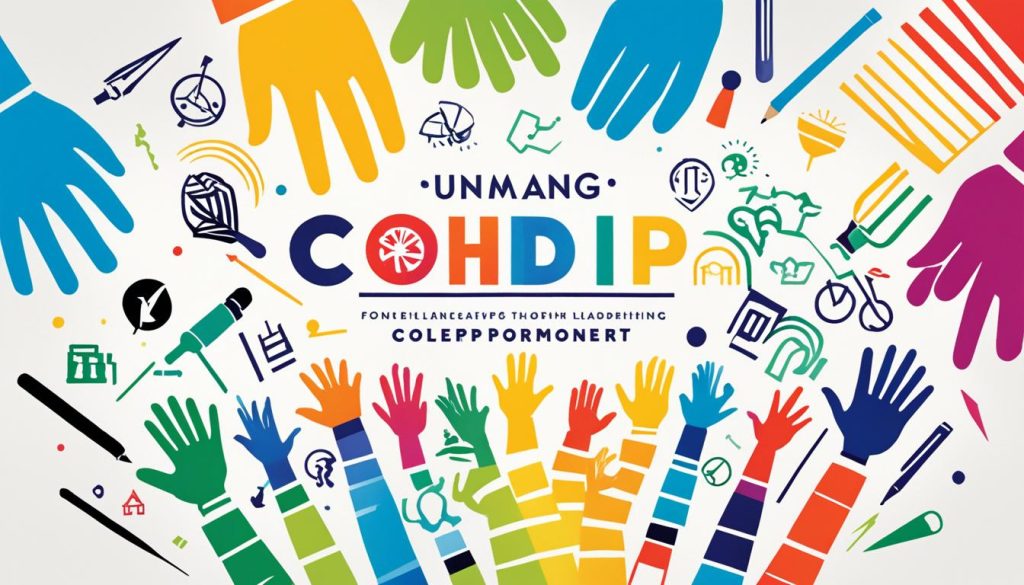Eastern Oregon University (EOU) provides a wealth of opportunities for individuals seeking to enhance their education through online degree programs. With a diverse range of options, EOU offers flexibility and convenience, allowing students to pursue their educational goals from anywhere. Whether you’re interested in teacher research, leadership and mentoring, trauma-informed curriculum development, or bilingual education, EOU has a program tailored to your needs.
At EOU, we understand the importance of accredited programs that provide quality education. That’s why all our online courses have been meticulously designed to ensure students receive a comprehensive and enriching learning experience. With experienced faculty, innovative resources, and a supportive online learning community, you can expect an education that prepares you for success in your chosen field.
Key Takeaways:
- Eastern Oregon University offers diverse online degree programs for individuals seeking to further their education.
- EOU’s online courses are flexible and accredited, providing the convenience and quality education you need.
- From teacher research to leadership and mentoring, EOU’s programs cater to various educational needs.
- EOU’s online programs are designed to prepare you for success in your chosen field.
- Take advantage of EOU’s online courses to achieve your educational goals and advance your career.
MS Program Teacher Research Core
The MS program teacher research core at Eastern Oregon University provides a strong foundation in educational research for aspiring educators. This core includes several courses designed to equip students with essential skills and knowledge in research methods, literature review, and executing a research project. These courses are a vital component of the MS in Education program, offering students the opportunity to deepen their understanding of research methodologies in the field of education.
Research Methods in Education
The Research Methods in Education course introduces students to various research methodologies commonly used in the field of education. Through this course, students will gain a comprehensive understanding of both quantitative and qualitative research methods. They will learn how to design research studies, collect and analyze data, and interpret research findings. This course provides the necessary tools for conducting rigorous and valid research projects related to education.
Literature Review I and II
The Literature Review I and II courses focus on developing students’ abilities to critically analyze research literature in the field of education. Students will learn how to identify key concepts and theories, evaluate the relevance and quality of research articles, and synthesize information from multiple sources. These courses will enhance students’ skills in conducting comprehensive literature reviews, enabling them to identify gaps in existing research and contribute to the knowledge base of the field.
“Literature review is an essential step in the research process as it helps researchers identify the existing knowledge, provides a theoretical framework for their research, and guides the development of research questions and hypotheses.” – Dr. Jane Thompson, Professor of Education at Eastern Oregon University
MS Research Project
The MS Research Project is the culmination of the MS program teacher research core. In this course, students will apply the research skills and knowledge acquired throughout the program to design and execute a research project of their own. Under the guidance of faculty advisors, students will develop research proposals, collect and analyze data, and present their findings. The MS Research Project allows students to deepen their understanding of a specific topic within the field of education and make a meaningful contribution to the field.
By completing the MS program teacher research core, students gain the necessary skills and knowledge to conduct evidence-based research in education. Whether they choose to pursue further graduate studies or work in educational institutions, these research skills will enable them to make informed decisions, contribute to the improvement of educational practices, and positively impact student outcomes.
References:
- Thompson, J. (2021). Literature Review in Educational Research: A Practical Guide. Eastern Oregon University Press.
- Ross, M. M. (2019). Research Methods in Education: A Practical Approach. Eastern Oregon University Press.
Foundations of Leadership & Mentoring
The Foundations of Leadership & Mentoring course offered by Eastern Oregon University is designed to equip K-12 professionals with the essential skills and knowledge needed to excel in leadership and mentoring roles. This course serves as an invaluable foundation for individuals aspiring to make a positive impact within their educational communities.
The curriculum support aspect of the course focuses on providing educators with the necessary tools and strategies to create inclusive and engaging learning environments. Through a culturally responsive practices lens, participants will explore various approaches to curriculum development that promote equity, diversity, and inclusivity.
“Equipping educators with the foundations of leadership and mentoring is essential to foster growth, support, and inspiration within diverse educational contexts.” – Eastern Oregon University
The course delves into topics such as dispositions that facilitate effective leadership and mentoring, understanding the unique needs of adult learners, and the role of curriculum in fostering culturally responsive practices. Participants will gain valuable insights into developing curriculum that addresses the needs of diverse learners while promoting equitable access to education.
As a complementary course to the Foundations of Leadership & Mentoring, ED 531 Intentional Development: Strengths, Priorities & Growth further explores the development and growth of future educational leaders. This combination provides a comprehensive framework for enhancing leadership and mentoring skills in the K-12 educational setting.

Course Highlights:
- Exploration of leadership dispositions and mentoring techniques
- Culturally responsive practices for curriculum development
- Considerations for adult learners in educational settings
- Addressing diverse learning needs through equitable curriculum support
Trauma-Informed Curriculum Development
The Trauma-Informed Curriculum Development course at Eastern Oregon University delves into the profound impact of trauma on PK-12 learners. This course is designed to equip educators with the knowledge and tools to create an inclusive and supportive environment within trauma-invested classrooms.
The course emphasizes the development of an asset-based curriculum that recognizes the strengths and resilience of diverse learners. By fostering a curriculum that affirms, engages, and supports students, it becomes a catalyst for growth and empowerment.
Central to the Trauma-Informed Curriculum Development course is the exploration of the role relationships, student identity, and experiences play in shaping a curriculum that fosters resilience, instills hope, and promotes social-emotional well-being.
The trauma-invested classroom:
- Recognizes the various forms of trauma that students may have experienced
- Provides a safe and nurturing environment
- Seeks to understand and respond to the unique needs of diverse learners
- Empowers students to build resilience and develop coping strategies

This course also examines the intersectionality between trauma, culture, race, and socio-economic factors. By adopting a culturally responsive approach, educators can design a curriculum that not only addresses trauma but also celebrates diversity and fosters inclusivity.
An asset-based curriculum:
- Recognizes and builds upon students’ strengths
- Engages students through relevant and meaningful content
- Promotes a growth mindset and a belief in the potential of all students
- Nurtures students’ socio-emotional well-being
Graduate students interested in enrolling in the Trauma-Informed Curriculum Development course should meet the prerequisite, ED 570, and have graduate standing in their respective program.
By equipping educators with the knowledge and skills to develop trauma-informed and asset-based curricula, Eastern Oregon University aims to create learning environments that support the holistic growth and academic success of every student.
Bilingual Education and English Instruction
Eastern Oregon University offers a variety of courses dedicated to bilingual education and English instruction. These courses are designed to provide students with a comprehensive understanding of the theory and practices related to bilingual education, as well as strategies for meeting the needs of English language learners in mainstream classrooms.
One of the key focuses of these courses is to introduce students to the history of bilingual education in the United States. By exploring the origins and evolution of bilingual education, students gain a deeper understanding of its significance and the challenges faced by linguistic minority students.
The courses also delve into the structure and functions of the English language. Through linguistic analysis, students develop a deeper understanding of the grammar, syntax, and vocabulary of English, which aids them in effectively instructing English language learners.
Furthermore, these courses offer insights into strategies and best practices for meeting the unique needs of English language learners within a mainstream classroom environment. Students learn how to create a supportive and inclusive learning environment that fosters linguistic and academic growth for all students.
In addition to theoretical knowledge, Eastern Oregon University’s bilingual education courses also provide practical experiences through ESOL (English for Speakers of Other Languages) practicum opportunities. These practicum experiences allow students to apply their knowledge and skills in real-world settings, working directly with English language learners and gaining valuable hands-on experience.
Graduate standing is generally required for most of these courses, ensuring that students have a solid foundation in education and are prepared to take on advanced coursework in bilingual education and English instruction.

Eastern Oregon University’s commitment to bilingual education and English instruction is apparent through its diverse course offerings that combine theory, practical experiences, and a focus on meeting the needs of English language learners. By enrolling in these courses, students gain the knowledge and skills necessary to support linguistically diverse students in their educational journeys.
Conclusion
Eastern Oregon University provides a wide array of online degree programs that empower individuals to further their education and enhance their careers. Whether you’re interested in the MS program teacher research core, leadership and mentoring courses, trauma-informed curriculum development, or bilingual education, EOU has flexible and accredited programs to meet your educational needs.
By offering online courses, EOU ensures that students can conveniently access quality education from anywhere, making it easier to balance their professional and personal commitments. With a focus on diverse learning methods and culturally responsive practices, EOU equips students with the knowledge and skills they need to thrive in today’s educational landscape.
Whether you’re seeking to advance your career in education, explore new opportunities, or make a difference in the lives of others, Eastern Oregon University’s online degree programs provide a solid foundation for success. Take the next step in your educational journey and join the EOU community today.




No comments! Be the first commenter?